On March 24, Senegal held presidential elections. Out of 19 candidates, the victory was won by a young “left-wing Pan-Africanist” from the largest opposition party, Bassiro Diomaye Faye, who was released from prison only ten days earlier.
Previously, in competition with experienced politicians such as 62-year-old Amadou Ba from the ruling party, the young left-wing populist could only count on qualifying for the second round. However, he won an unconditional victory in the first one, which was preceded by the failed government policy.
As United World International, we have compiled for you how the press of two countries such as Russia and Azerbaijan, which follow the region closely, evaluated these elections.
Macky Sall’s foreign policy
Let’s start with the dossier prepared by the Russian official TASS agency for the previous president, who left office with these elections. TASS summarizes Macky Sall’s foreign policy as follows:
“Macky Sall’s foreign policy was aimed at strengthening relations with traditional partners, in particular with the USA and EU countries, among which France, the leading foreign trade partner and investor in the Senegalese economy (this country accounts for 16.3 per cent of imports), occupies a special place. In addition, ties with China, which has sponsored a number of important infrastructure projects, have been developing (China ranks second in the structure of Senegalese imports).
Macky Sall has significantly enhanced the country’s foreign policy profile, with Senegal hosting several international events since 2012 (among them the 15th Francophone Summit in 2014) and the annual International Forum on Peace and Security in Africa in Dakar since 2014. In 2015, Senegal was elected as a non-permanent member of the UN Security Council, and in 2017 it held representatives to the UN Human Rights Council.
The Macky Sall administration has attached importance to regional security cooperation and trade and financial integration, especially with neighbouring Gambia and Mali. In 2017, Sal played a decisive role in resolving the political crisis in The Gambia, with Senegalese troops deployed there as part of the ECOWAS peacekeeping operation.”
The reason for Bassirou Diomai Faye’s victory
The reason for Bassirou Diomai Faye’s victory in the presidential election in Senegal in the first round was the fact that during the campaign he proposed a radical change in domestic and foreign policy. This is the view expressed in a conversation with a TASS correspondent by Sergei Yeledinov, a Russian African expert who has been permanently living and working in Senegal and other West African countries for more than 15 years.
“It can be stated that the elections in Senegal have not only taken place, but have been completed. Already in the first round, with about 57% of the votes, Bassirou Diomai Fay, the second man in the country’s leading opposition party Patriots of Senegal for Labour, Ethics and Fraternity (PASTEF), led by Ousmane Sonko, himself not allowed to participate in the elections, won,” the agency’s interlocutor noted.
“The 24 March vote was largely informed and motivated rather than protest. The electorate of the winner of the election supported not just a change of government but a particular candidate. Diomai Fai is perhaps the only candidate with a programme that implies a radical change in the country’s domestic and foreign policy. And his confident victory is an indicator of the strong desire of the Senegalese society for large-scale changes,” the expert emphasised.
“It is noteworthy that other opposition candidates received a low percentage of voter support. This is because they are classic, old-format and unable to attract young people, who represent the bulk of the Senegalese electorate,” Yeledinov continued.
“The programme of the future presidential team is quite voluminous, and its main provisions include, first of all, the need for social transformations related to the creation of jobs mainly for young people and the reduction of social injustice. In terms of the state apparatus, the plan is to reduce the role of the executive branch in favour of the legislative branch, while maintaining the independence of the judiciary. It is planned to introduce the post of vice-president, primarily to consolidate the status of Ousmane Sonko, and to abolish the post of prime minister,” the expert said.
“In the economic sphere, Fai and his team plan to bet on the development of national business and self-sufficiency, on strengthening food security, on countering the monopoly of transnational companies. A separate point is the exit from the zone of the African franc, a currency controlled by the French Central Bank,” he said.
“The main principle of international policy is proclaimed to be the establishment of friendly equal relations with the international community on the principles of multipolarity of the world,” Yeledinov summarised.
A new example of the bankruptcy of French policy
Bakinsky Rabochy, the official newspaper of the Azerbaijani state, stated that the Senegal election results are a new example of the bankruptcy of French policy in Africa:
“In the recent presidential election, opposition candidate Bassirou Diomaye Faye won a landslide victory. As part of his campaign, he promised to renegotiate oil and gas deals with Western European countries, including agreements with British Petroleum, Endeavour Mining and Kosmos Energy. Alongside this, Faye is in favour of a radical overhaul of relations between Senegal and France. He is going to follow neighbouring Mali, Niger and Burkina Faso in withdrawing from the French currency system, abandoning the CFA franc. Moreover, the French military will have to leave the country.
At the same time, Bassirou Diomaye Faye promised to take the path of rapprochement with Russia. Thus, France’s next major foreign policy defeat on the African continent looms on the horizon.
As if anticipating the events, Paris had earlier announced a sharp reduction of the military contingent in the country, which, in the opinion of the Elysee Palace, would avoid any difficulties in the future. Meanwhile, Senegal was a key player in the blockade of Niger, Burkina Faso and Mali, previously freed from the influence of the Elysee Palace. Senegal’s withdrawal from the CFA franc zone hammered the final nail into a financial system that had brought Paris enormous profits and on which the entire system of French neo-colonialism was essentially built.”
CBC, one of Azerbaijan’s leading TV channels, also makes the assessment that Senegal will expel France from Africa and interprets the election results as “Senegal slapping Macron”.
Russian think tank Katehon shares similar views and highlights the speech made by Senegal’s new leader after the elections. “I promise to govern with humility and transparency and fight corruption at all levels. I promise to devote myself fully to rebuilding our institutions,” he said. The president also promised to improve Senegal’s control over its natural resources by encouraging national companies to prevent the country from sinking into “economic enslavement.” In Katehon’s view Senegal applies to the multipolarity project.
What should we expect from the new president?
The Russian Telegram channel Rybar writes what should we expect from the new president?
“One of the most important changes in Faye’s programme is the abolition of the post of prime minister and the establishment of the post of vice-president. The powers of the president and vice-president will be strictly divided, making the second person of state a more independent figure. PASTEFA leader Ousmane Sonko is likely to be appointed to the new post, which will allow him to take full power.
Ousmane Sonko, as well as his successor, has been dubbed by the French media as a ‘conduit of Russian influence’ who seeks to build a regime similar to that of the neighbouring Sahel states. This campaign was launched by the former government last year to convince its handlers in Paris of its lack of alternatives. The authorities did the same thing back in 2019 with exactly the same objectives.
In reality, neither Faye nor Sonko are politicians similar in outlook to the leaders of the Sahel’s transitional governments. Their political careers have been built in the civil service rather than the military, both received prestigious educations and gained popularity as tax inspectors.
Despite all the populist pan-Africanist slogans, no fundamental change in relations with France and the US is in sight. The new Senegalese government will only try to reduce the influence of French capital on the country’s economy under the slogan of creating a national currency and abandoning the CFA franc. In Faye’s words, ‘There is no sovereignty without economic independence.’ He also promises to loosen the ‘French economic dead grip’. These statements so far are also perceived as populism, because even the most anti-French countries in Africa could not create a strong national currency from scratch and abandon the CFA franc, because it has become obvious that the currency needs independent support and a developing economy throughout the region. The integration processes in the Sahel Alliance are aimed at achieving this goal.
At the same time, he said that the country will start producing gas and oil at the end of the year. And appropriate social infrastructure will be created to ensure the safety of foreign investments.
In the military sphere, Faye is keen to raise the prestige of the armed forces and strengthen the fight against corruption. He has declared the armed forces to remain apolitical, which actually means continuing to serve as a logistical support centre, gathering intelligence and monitoring the situation in West Africa for the US.
The purchase of US C-130 transport aircraft for the air force “to effectively fulfil external commitments” is also promised, emphasising the role of the Senegalese army in possible pro-Western ECOWAS missions and Senegal’s role in Washington’s plans.
An event that could have been another election for Senegal has turned into one of West Africa’s high-profile events with an unexpected outcome a month ago.
If the reforms promised by Faye and Sonko are implemented, it will not mean the removal of Western influence on the country, but only a slight reshuffling and change of asset managers between France and the US (as already observed in Gabon).”
First steps of the new government
Russian expert Victor Vasiliev, on the other hand, makes different evaluations about the new government. Although he does not directly see the new power as the victory of the Atlantic front, he puts forward remarkable claims:
“Despite the pan-African and rather radical nature of the entire political rhetoric and political path of the young oppositionists, it can be predicted with a high degree of probability that the elite consensus inside will be preserved.
In foreign policy, the country will continue the course outlined by Macky Sall – equal partnership both with Paris, Russia, Türkiye and China.
It is Macky Sall who is one of the initiators of the African Peace Initiative and who has visited Kiev and St Petersburg as part of a high group. And it is Senegal that has repeatedly refrained from supporting UN resolutions condemning Russia’s actions in Ukraine.
It is unlikely to expect drastic steps related to the refusal to cooperate with France, the expulsion of its armed contingent from the country or Senegal’s withdrawal from the franc zone.
But there is one circumstance that, if not pleasing, at least explains the need for such a complex strategy and the unnatural alliance between the former ruling family and the young oppositionists. They have a common goal – to prevent the pro-American candidate Amadou Ba from coming to power. And it has been achieved.
It is also obvious that the new leader Bassiru Diomaye Faye will initially be a nominal political figure. His victory is fully ensured by the popularity of his party comrade Ousmane Sonko, who is likely to take the post of prime minister in the new government.
A few words about him should also be said. Ousmane Sonko is a kind of Senegalese Navalny, flirting with a pan-African agenda and relying on young people and the rich diaspora of Senegalese in Western countries.
Even opposition leader Ousmane Sonko began his own political career by investigating financial embezzlement. At a certain stage, Sonko became an effective project of political engineering in the hands of the United States. It is possible that a great future was being prepared for him, beyond the boundaries of the Senegalese political kitchen alone.
But in the last year, the oppositional has been blatantly forgotten. Perhaps this also played a role and forced him to make behind-the-scenes arrangements with Macky Sall.
However, how fair are the assumptions and the strength of the agreements reached, will show the first months of work of the new authorities.”
As United World International, we will continue to analyze the elections in Senegal and the steps of the new government from different sources and angles.


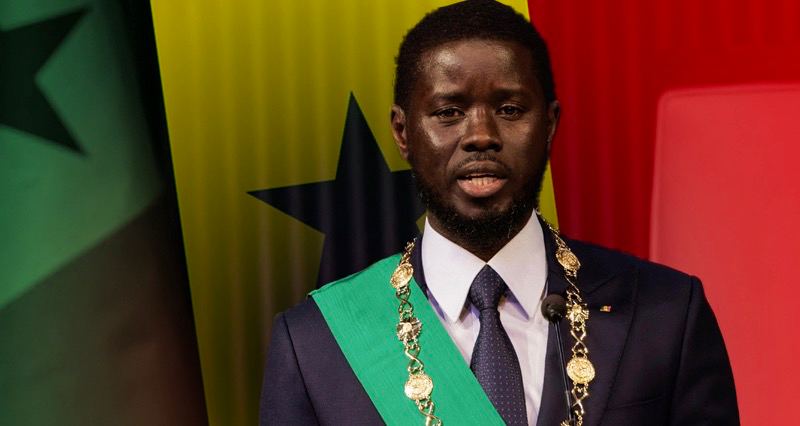

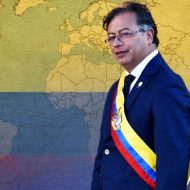
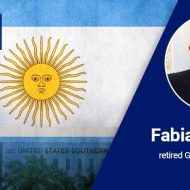

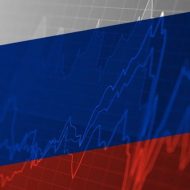
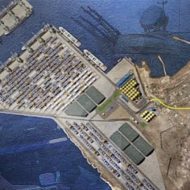
Leave a Reply